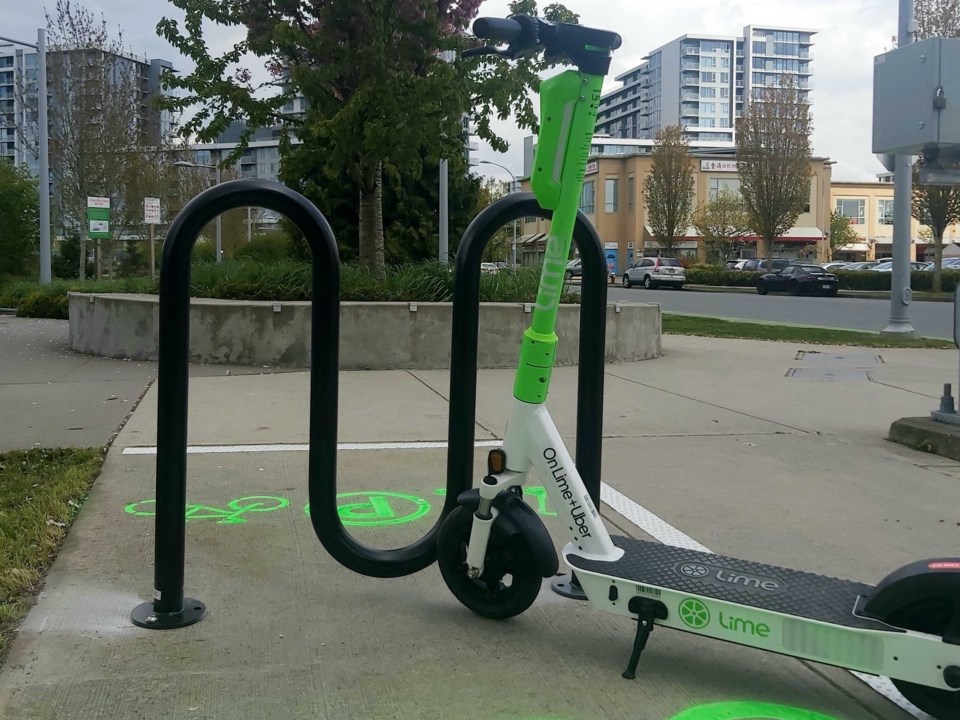While safety concerns rose over e-scooters in Paris where people voted to ban rental scooters earlier this month, Richmond officials said their pilot rental scooter program has had “little effect on policing resources.”
May will mark the one-year anniversary of the launch of the City of Richmond’s e-scooter pilot project, the first e-scooter rental program in Metro Vancouver.
However, earlier this month, Paris, which has been a pioneer in this urban transportation option, voted in a referendum to ban rental e-scooters, over concerns about them clogging sidewalks, causing traffic accidents and injuries, and reducing the use of public transportation.
Although there have been complaints around e-scooters in Richmond, particularly those used for food delivery, Richmond officials said the Lime rental program “appears to have had little effect on policing resources.”
“And we are hopeful this will be the trend for the future,” wrote Ian Henderson, Richmond RCMP spokesperson, in an email to the Richmond News.
Over the past year, according to Henderson, the Richmond RCMP received four reports of abandoned e-scooters, and one e-scooter collision with a motor vehicle.
“There was also one suspicious occurrence, which ultimately turned out to be a person trying to figure out how to rent an e-scooter.”
The city said they have received some concerns about e-scooters since the pilot project commenced, mainly related to their use on sidewalks – e-scooters are not permitted on standard sidewalks.
The pilot project, which includes 75 e-scooters and 25 e-bikes administered under a contract by Lime, “appears to be well used so far,” said the city’s spokesperson, Clay Adams.
Around 20,300 users made 46,800 trips on e-scooters and e-bikes between May 2022 and March 2023, and the average trip is around 1.5 kilometres.
With the warmer weather arriving soon, Henderson wanted to remind drivers that they will likely see more e-scooters on local streets and designated pathways.
“E-scooter users are also reminded that the rules of the road apply,” said Henderson.
“They are expected to safely share the roadways and designated pathways with other drivers and pedestrians, and there are limits to where and how fast e-scooters may go.”
Users must not exceed 20 kilometres per hour on roadways and 15 kilometres per hour on multi-use pathways shared with pedestrians, according to the city.
“The success of the micromobility program here [in Richmond] shows how much potential there is for shared electric vehicles in British Columbia,” said Hayden Harvey, senior manager of government relations at Lime.
“By shifting some trips from cars, Lime riders have saved an estimated 5.6 metric tons of carbon emissions and nearly 2,500 litres of gas.”
Any expansion of the current program in Richmond, according to Adams, will depend on the outcome of the province’s three-year Electric Kick Scoter Pilot Project and its recommendations.
E-scooters are currently allowed in 12 cities in B.C. but some only let people ride their own e-scooters and different cities might have varying requirements.



